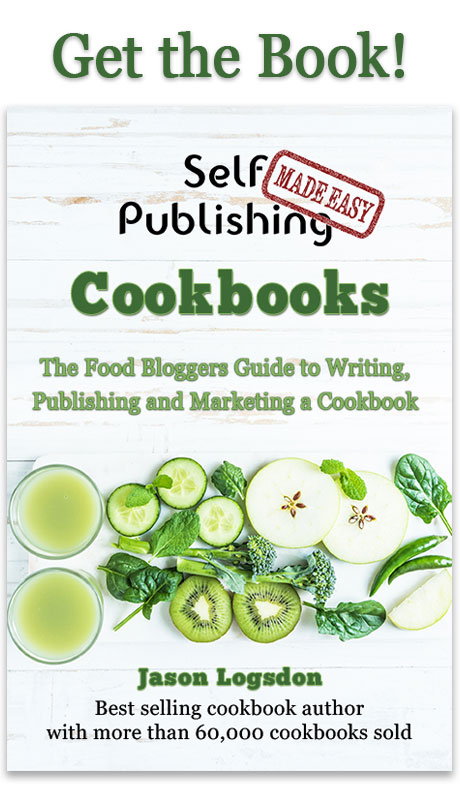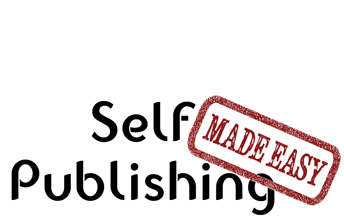Existing Users Sign In

Publishing Master Course Outline
- Self Publishing Master Course Introduction
- Before You Get Started
- Overview of the Publishing Process
- Determining Your Cookbook Goals
- Determine Type of Cookbook
- Consider a Sample Book
- Determine Book Subject
- What Makes a Good Cookbook Subject
- Brainstorming Cookbook Subjects
- Determine the Competition In a Cookbook Subject
- Finding Complementary and Competitive Products
- How to Generate a List of Keyword for Your Cookbook Subject
- Competitive Breakdown of an Amazon Sales Category
- Finally Choosing Your Cookbook Subject
- Research Cookbook Subject
- Choosing Your Avatars
- Researching the Cookbook Subject
- Researching Material for Your Cookbook
- Outlining and Notetaking Tools
- Write Cookbook and Recipes
- Keys to a Well Written Book
- Components to a Recipe
- Recipe Layouts
- Recipe Attribution
- Book Writing Tools
- How to Back Up Your Cookbook Files
- Photograph and Test Recipes
- How to Test Cookbook Recipes
- Food Photography Tips
- Proofread and Edit Cookbook
- Types of Cookbook Editing
- Tips for Self Editing Your Cookbook
- Finding Outside Editing Help
- Proofreading and Editing Resources
- Publishing Formats
- Types of Cookbook Publishing Formats
- Choosing a Self Publishing Printer
- Comparison of Print on Demand Cookbook Printers
- CreateSpace Cookbook Publishing Review
- IngramSpark Cookbook Publishing Review
- Ebook Publishers and Distributors
- Design Cookbook
- Cookbook Design and Formatting Guidelines
- Choosing A Great Cookbook Title
- How to Design a Cookbook Cover
- What Fonts to Use in Your Cookbook
- Cookbook Front Matter
- Cookbook Back Matter
- In-Book Marketing
- How to Design an eBook
- How to Create an ePub File
- Previewing and Testing eBooks
- Finding Outside Design Help
- Publish Cookbook
- How to Price Your Cookbook
- How to Write a Selling Book Description
- Determining Your Amazon Categories
- Choosing Publishing Keywords
- How to Publish on Amazon With CreateSpace
- How to Publish an eBook
- How to Publish On the Kindle
- How to Publish on the Nook
- How to Publish on iTunes
- How to Publish Your Book Through Smashwords
- How to Create and Sell a PDF on Your Blog
- Wholesaling Cookbook
- Methods of Cookbook Wholesaling
- Where to Wholesale Your Cookbook
- Developing a Wholesaling Line Sheet
- Promote Cookbook
- How to Launch Your Cookbook Successfully
- Getting Amazon Reviews
- Newsletter Promotions
- Free Content and Previews on Your Blog
- How to Get Blogs to Write About Your Cookbook
- General Articles
- All About ISBN Numbers
- How Do Cookbook Royalties Work?
- Financing Your Self Published Cookbook
- What is the Amazon Sales Rank?
- Cookbook Writing Resources
- Understanding Book Margins
- PDF Self Publishing FAQs
- How to Poll Your Blog Readers
- What is DRM
- Great Books to Learn About Food and Recipe Writing
- KDP Select - What Is It and Is It Worth it?
- Cookbook Design Programs
- Amazon Top Cookbook Reviewers
- Should You Publish Your ebook Directly or Use a Distributor
- Case Studies
- Sales Channel Revenue Breakdown with Modernist Cooking Made Easy
- Cookbook Writing and Marketing Templates
- Recipe Testing Worksheet Templates
- Review Requests Templates
- Cookbook Newsletter Promotion Templates
- Cookbook Manuscript Templates
Existing users please sign in to continue reading this article.
Welcome to Self Publishing Made Easy!
Publishing a Cookbook can be
Challenging
We will make the process clear and easy, allowing you to focus on creating a remarkable cookbook without any distractions.
Easily Navigate The Publishing Process
Benefit From a Community of Other Self Publishers
Maximize Your Distribution and Profit
We are the leading cookbook self publishing member site on the internet and are here to help you navigate the sometimes tricky path of self publishing. We provide step by step guidance to publishing your own cookbook as well as access to our active and helpful community of self publishers.
Or Get More Information about Self Publishing Made Easy
Tips for Self Editing Your Cookbook
Click here to get great self publishing content via emailWhether or not you end up using friends or an outside service to help you edit, you should still spend time editing your own work. The more complete the manuscript you give to friends the happier they will be and the less money you will have to spend on an outside service. Depending on your preferences, you can either print out your book and work from the hard copy or do it directly in your word processor. Some people also recommend going through your final copy on your ipad or tablet, this gives you a different view of the content and forces your brain to re-think how some of it goes together.
Finding Sentence Structure Errors
A great way to find errors in sentence structure is by reading the text out loud. When you do this, most awkward sentences will jump out to you. You can then rework them until they sound right.
It can also be a good idea to take a week or so off before editing for sentence structure. Because you are so immersed in your book you will often know what you are trying to say even if the words don't actually say that. Taking a little time off will help you forget what you meant to say and you'll see what you actually wrote.
Search for the Word "That"
Often the word "that" and some of the words around it can be eliminated by carefully rewording the sentence.
Minimize Your Copy
A good rule of thumb is to try to use the fewest words possible to convey the same amount of information. Cutting out extraneous words, extra sentences, and other pieces of text that don't help convey your message will help tighten up your writing, making it easier on the reader. Some sentences can be made more direct, getting to the point more quickly.
This does not mean you want to change the tone of your writing, or the amount of information presented. It just ensures you are doing it the most effective way possible.
Vivid Copy
There are many words that do not convey much information and it's best to not use these. Some of these words are "nice", "good", and "ok". They do not add any information and can easily be replaced by more impactful words.
Picture Yourself as Your Reader
When you are proofing your book it is very helpful to picture yourself as your avatars. Keeping their mental states and existing knowledge in mind, as well as what they hope to learn from your book, is a great way to pick up on areas that might need more clarification.
Finding Grammar and Spelling Errors
While it sounds like a no-brainer, the first place to start is by running the spell check and grammar check in your word processor. This will catch many low-level issues you need to fix. You can also use external grammar checkers like Grammarly.
Many people recommend reading your text backwards to find spelling and grammar errors. Our brains have the tendency to auto-complete sentences and smooth over bumps in the text while reading. Going backwards removes this process, allowing errors to show more clearly. Some people recommend reading each word backwards one at a time, others do a paragraph at once. Experiment and see what works best for you.


